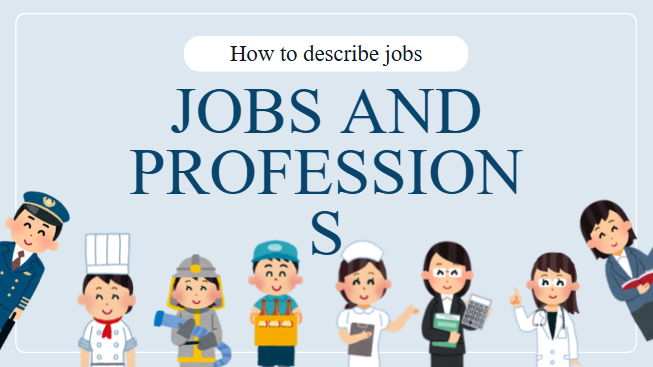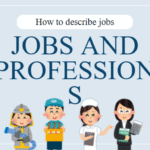
Introduction
One of the initial questions that most people typically ask when they encounter a new person is, “What is your profession?” It is an easy question, but one that holds significant meaning. A profession not only explains what one does to earn money but typically encompasses their interests, abilities, identity, and contribution to society. In today’s rapidly changing world, working life is more diverse than ever — from traditional occupations and careers to technology- and knowledge-based careers. Understanding the Meaning of Profession
A career is a remunerated profession, particularly one in which there is prolonged training and formal certification. It differs from a job because it will possess a more defined sense of identity, moral obligations, and societal influence. While a job is perhaps transitory or chaotic, a career is something that one builds a career upon.
For example, a computer programmer, a physician, a lawyer, or a school teacher is a profession. Such professions can involve some training, licensure, and adherence to some standards of practice.
Importance of Choosing the Right Profession
Selecting the appropriate career is a large life choice. It impacts your work-life balance, your mind, your wallet, and even your social life. A career should ideally be in your strengths, values, and interests. There are those who are motivated by passion, others by great compensation or security. There is no one correct response — the ideal career is one that suits you.
Types of Professions
Professions are generally categorized into a number of groups on the basis of industry, work nature, and skills. Some of the most common ones are:
1. Medical and Healthcare Professions
They are among the most highly rated and critical professions in society. Professionals belonging to this category save lives, enhance health, and enhance the quality of life.
Examples: Doctors, nurses, surgeons, dentists, pharmacists, physical therapists.
Education: Lengthy training, medical school, internship, and certification.
Skills Needed: People skills, communication skills, patience, leadership.
2. Engineering and Technical Professions
Engineers and technologists create and upkeep the technology and infrastructure we utilize.
Examples: Electricians, mechanical engineers, software engineers, civil engineers.
Qualifications: Engineering qualifications or technical certification.
Skills Needed: Math ability, creativity, problem-solving, technical know-how.
3. Teaching and Education Professions
Teachers make a lifelong difference by teaching children, advising them, and inculcating a love of learning which lasts their whole lives.
Examples: Teachers in schools, professors in universities, private tutors, education counselors.
Education: Education or subject-related degrees; teaching certifications.
Skills Required: Subject-specific knowledge, patience, flexibility, communication.
4. Business and Financial Careers
These professional careers assist businesses to grow, manage resources, and make good strategic choices.
Examples: Accountants, financial analysts, managers, marketers, business owners.
Education: MBA, BBA, CPA, CFA certifications.
Skills Required: Leadership, critical thinking, finance knowledge, communication.
5. Creative and Artistic Careers
Creative professions provide an outlet for the expression of ideas, feelings, and creativity in many forms of art.
Examples: Authors, graphic artists, composers, performers, photographers.
Education: Formally acquired degree from to self-taught skill and portfolio.
Skills Needed: Creativity, originality, narrative, technical mastery of the medium.
6. Legal and Government Professions
Legal and government professionals deal with upholding law and order, public service, and representation of individuals or groups in a court of law.
Examples: Judges, lawyers, police officers, civil servants, politicians.
Education: Legal licensure, law degrees, public administration.
Required Skills: Public speaking, negotiation, ethics, legal knowledge.
7. Skilled Trades and Hand Jobs
These are manual jobs and usually the central part of industries such as construction, manufacturing, and services.
Examples: Plumbers, carpenters, chefs, mechanics, drivers.
Education: Vocational training, apprenticeship, trade school.
Required Skills: Problem-solving, physical stamina, attention to detail, craftsmanship.
8. Technology and IT Careers
Due to the revolution in the digital era, IT professionals are part of nearly every profession.
Examples: Computer programmers, cyber security professionals, data scientists, IT support specialists.
Education: Computer science certifications, coding boot camps, IT certification.
Skills Required: Coding, problem-solving abilities, data analysis, technical assistance.
How Professions Are Changing
Previously, a person would have one profession for his entire life. Nowadays, the trend is shifting to switching occupations, freelancing, or creating new models of working because of the internet penetration and connectivity. The world remote working, AI, and automation also revolutionize the job scene. Future careers may be like virtual reality developers, AI moralists, or space tour guides.
Final Thoughts
Your job not only informs how you make a living — it is also an emotion of who you are, where you’re going, and what you’re most passionate about. Whether you’re saving lives, constructing cities, making art, or cracking puzzles with code, all jobs matter and are worth doing. The only requirement is discovering one that challenges, satisfies, and stretches you.
Since the world is constantly changing, jobs are also constantly changing. It is not necessarily about selecting the greatest job but being prepared to learn, become adept at it and develop over the course of your working life.







